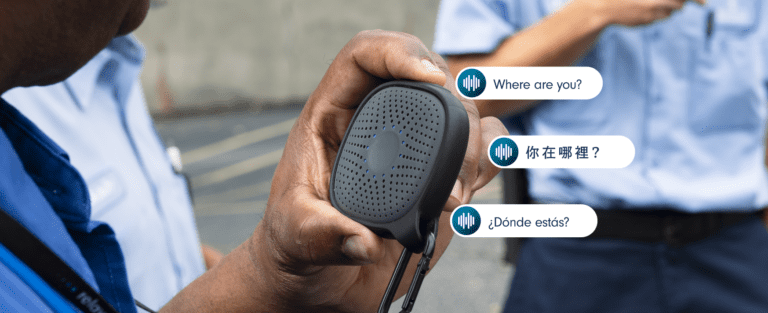The hospitality industry is undergoing a lot of exciting changes as the panic button legislation continues to roll out nationally. But along with the relief at having better protections for distanced staffers, come new challenges as well. After all, what good are these new panic buttons if your staff isn’t completely clear on best uses and practices? More than that, if your employees aren’t used to relying on technology on a daily basis, how can they be expected to automatically adapt to the idea of potentially using panic buttons as part of their daily routines?
Set training goals:
Before you move forward with training your staff create measurable and actionable goals to be shared as needed. Before your next meeting on the subject, try to address at least some of the following questions:
12 questions to cover before your staff trainings:
- How much time do you plan on allocating to creation of employee safety training?
- Will these be in-person training sessions, digital training or recorded sessions?
- How many languages will you offer training in?
- Who poses the greatest potential threat to employee safety?
- How will you know if the training is successful?
- Will you offer refresher courses at any point in the future?
- How often will staff panic buttons be tested?
- Will you offer actual drills to test out the new devices?
- Will you offer tiered learning programs, or will all staff members learn at the same time on the same level?
- How will you address any glitches in your response time?
- How will you keep a record of the times panic buttons are deployed?
- Will you have local law enforcement involved in the training process?
Digital natives vs. less tech adept counterparts
Another potential glitch in the process depends on the age of your staff or at the least their comfort level in using technology. While digital natives might think of panic buttons as just another expected update in their work life, staffers who are newer to tech might have a hard time getting used to these new devices.
The Relay difference:
If you’re ready to set up your own network of panic buttons, look no further than Relay. Our products are compliant, affordable, and efficient. Relay is an easy to deploy, flexible panic button. Best yet, it’s also an elevated communications solution, so you’re combining two critical line items into one (with better value). With Relay, you save money, setup is nonexistent, and our products offer hotel staff a practical, easy solution.
Learning from students
The Afterschool Tech Toolkit is an online resource for empowering students and training them on how to access and use tech outside of the classroom.They created some training modules to help individuals and companies learn to train and support staff in the use of technology. While the module was theoretically geared toward students, it also offers very common sense wisdom and understanding including the idea of “building staff comfort and confidence” in using new technology.
Before distributing panic buttons to your staff, you can come up with informal training sessions or methods to increase ease of use.
- Increase their comfort level: Is there a way you can work with your own staff to build their comfort level in always keeping their panic buttons close at hand? What about easy to remember tricks to deploying the button only in an emergency? If you present the devices with confidence and build in the opportunity for initial glitches, you reassure your staff that it’s an ongoing process and that you’re all learning as you go.
- Make it fun if possible: Another challenge posed in the student training module was realizing that “It may feel exhausting for staff to focus on both their day-to-day responsibilities and learning new skills, apps, devices, and systems.” Is there a way to make the training more fun, or to gamify the process? It might sound weird, but timing the response of others or creating an informal marathon with actual prizes awarded might reinforce staffers to the value of learning how to properly use their new panic buttons.
- Explain the added benefits: The 2017 National Education Technology Plan raised an interesting idea of upskilling those you’re educating. If you are able to impart the message to your staff that by undergoing training they are simultaneously improving their safety while upgrading their own skillset, the training in itself becomes something worth paying attention to. Take it a step further, can you create some sort of interior documentation that has necessary steps completed along with a certificate of completion? While your informal certification is mostly decorative, it also gives employees a feeling of accomplishment along with a document to refer back to if needed.
- Acknowledge that lone workers might need completely different training: Lone worker safety is an issue that is often addressed in other industries, but that doesn’t mean the lessons aren’t universal for hotel or casino staff as well. Back in 2014, the site org — which deals with the spectrum of worker safety issues— explained some of the risks lone employees face that might not be automatically obvious to the rest of staffers or management. From working off-hours to dealing with medical conditions while somewhat isolated, lone workers including housekeeping staff have special needs that should be addressed thoughtfully in training as well.
At Relay, we’re proud that our devices connect workers and empower them through the use of a panic button and a completely connected cellular network. Contact us to find out how to empower your staff through connectivity with a device that alerts anyone to potential danger.




